If you’re a guinea pig owner, you probably know that their diet needs to consist mainly of hay, fresh vegetables, and a small amount of pellets. But what about fruits? Can your guinea pig enjoy the occasional treat of mulberries?
In this section, we will explore whether mulberries are safe for guinea pigs to eat. We’ll provide you with expert tips on how to feed mulberries to your furry friends and discuss the proper portion sizes and potential benefits.
Key Takeaways:
- Mulberries can be safely enjoyed by guinea pigs as long as they are given in moderation
- Ensure to prioritize their main diet of hay and fresh vegetables to ensure their nutritional needs are met
- Wash the mulberries thoroughly and remove any stems or leaves before offering the fruit to your pet
- A suitable serving size for a guinea pig is around one or two small berries a few times a week
- There are several other safe treat options for guinea pigs, including pieces of apple, pear, or cucumber
Understanding Guinea Pig Dietary Needs
Guinea pigs are herbivores and require a diet that is high in fiber, vitamins, and minerals to maintain optimal health and well-being. As such, their diet should consist primarily of hay, fresh vegetables, and a small amount of pellets.
The importance of hay in a guinea pig’s diet cannot be overstated. Timothy hay, orchard grass hay, and meadow hay are excellent options that provide essential fiber and nutrients. Fresh vegetables like carrots, bell peppers, and dark leafy greens are also important, as they offer vitamins and minerals that help support good health.
In addition to hay and vegetables, guinea pigs require a small amount of pellets, typically a quarter-cup per day, to meet their nutritional needs. Select pellets that are specially formulated for guinea pigs and avoid those intended for other types of rodents. Pellets should be high in fiber and low in fat to maintain healthy digestion.
Remember that offering treats as part of a guinea pig’s diet should always be done in moderation. Treats should not replace the bulk of their diet and should be offered only as an occasional supplement.
Nutritional Value of Mulberries
Mulberries are a rich source of essential vitamins and minerals for guinea pigs. They contain high levels of vitamin C, which is important for maintaining a healthy immune system. Additionally, they are a great source of vitamin K, which is essential for blood clotting and bone health.
Mulberries also contain antioxidants, which help protect against cellular damage caused by oxidative stress. This is especially important for preventing diseases associated with aging.
However, it’s important to note that mulberries also have a high sugar content. While small amounts of sugar are required for energy, excessive amounts can lead to obesity, diabetes, and dental issues. Therefore, moderation is key when feeding mulberries to guinea pigs.
Key Points:
- Mulberries are a rich source of vitamins and minerals, including vitamin C, vitamin K, and antioxidants.
- Antioxidants protect against cellular damage caused by oxidative stress.
- Mulberries should be fed in moderation due to their high sugar content.
Can Guinea Pigs Eat Mulberries?
Guinea pigs can definitely eat mulberries, but only in moderation. It’s important to offer mulberries as an occasional treat rather than a regular part of their diet since too much sugar can lead to health issues, such as obesity and dental problems. Therefore, it’s crucial to monitor their intake carefully.
The sugar content in mulberries can be harmful to guinea pigs if not taken carefully. Therefore, limiting their intake becomes essential.
To ensure your guinea pigs enjoy eating mulberries safely, always wash them thoroughly to remove any pesticides or dirt before feeding. Additionally, remove any stems or leaves before serving the fruit to your pet. This ensures that only the edible part of the mulberry is consumed by your guinea pig.
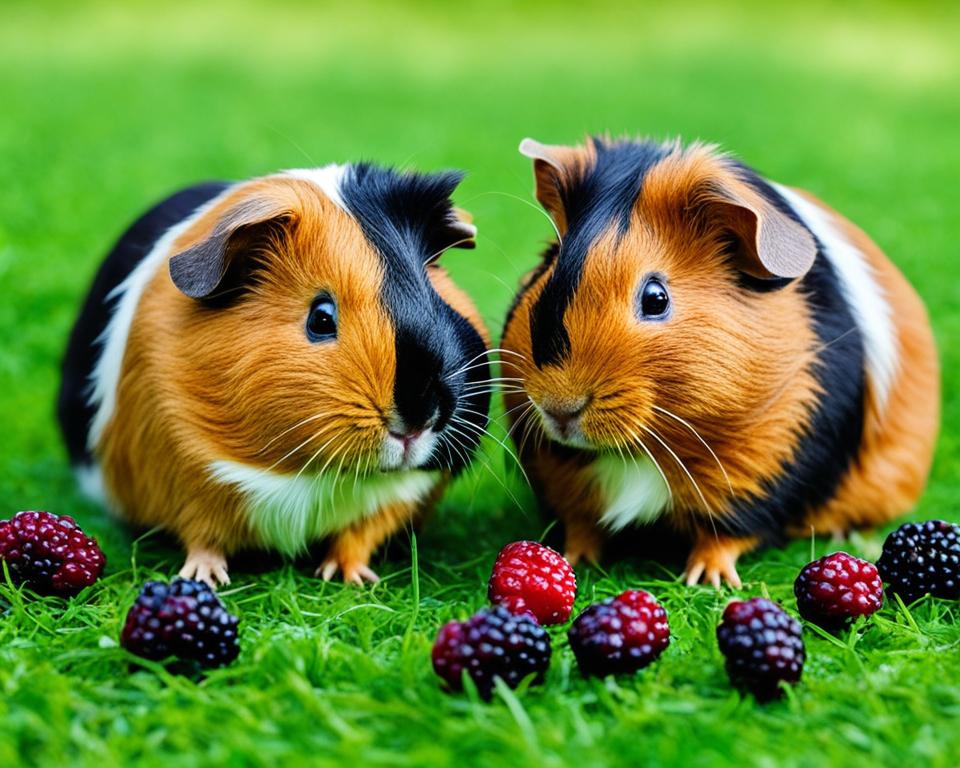
Safe Feeding Tips
Feeding mulberries to your guinea pig can be a great treat, but it’s important to take some precautions to ensure their health and well-being. Follow these safe feeding tips:
- Wash thoroughly: Always wash the mulberries thoroughly to remove any pesticides or dirt before feeding them to your guinea pig. This helps prevent any potential health risks or adverse reactions.
- Remove stems and leaves: Remove any stems or leaves from the mulberries before serving them to your pet. These parts can be difficult to chew and may pose a choking hazard.
- Serve in small pieces: Serve small, bite-sized pieces of mulberries to your guinea pig. This helps prevent any choking incidents and also helps moderate their sugar intake.
By following these safe feeding tips, you can ensure your guinea pig’s safety and enjoyment of the treat. Remember, moderation is key to maintaining their overall health and well-being.
Portion Sizes
When it comes to feeding your guinea pig mulberries, portion control is key. While mulberries are safe for guinea pigs in moderation, they should not replace their main diet of hay and vegetables. A suitable serving size for a guinea pig is around one or two small berries a few times a week.
Remember, too much sugar can lead to health issues, such as obesity and dental problems, so offering small quantities of mulberries is important. It’s also a good idea to monitor your guinea pig’s consumption to ensure they’re not overindulging.
Benefits of Mulberries for Guinea Pigs
Mulberries, when given in moderation, can provide several benefits for guinea pigs. They are rich in vitamin C, which can support their immune system and promote healthy skin and fur. The antioxidants present in mulberries can help reduce the risk of oxidative damage in the body.
The fiber in mulberries can also aid in digestion, promoting healthy bowel movements. However, it’s important to remember that too much fiber can cause digestive upset in some guinea pigs, so portion control is essential.
Overall, mulberries can be a healthy addition to your guinea pig’s diet when offered as an occasional treat. Always monitor their intake and consult with a veterinarian if you have any concerns about their health.
Potential Risks and Considerations
While mulberries can provide guinea pigs with several nutritional benefits, it’s essential to note some potential risks and considerations before feeding them to your furry friend. One of the primary concerns is the high sugar content in mulberries, which can lead to weight gain and other health issues like diabetes, if not given in moderation.
Additionally, some guinea pigs may have a sensitive digestive system, leading to gastrointestinal issues after consuming mulberries. It’s crucial to consult your veterinarian and introduce any new food like mulberries to guinea pigs gradually. This will help prevent any unwanted digestive issues.
Other Safe Treat Options
If you’re looking for safe and healthy treats for your guinea pig, there are several options to choose from. These include:
- Small pieces of apple: Apples are a good source of vitamin C and fiber, but remember to remove the seeds and core before feeding them to your pet.
- Pear: Pears are a great low-sugar option that can be fed in small pieces as a treat.
- Cucumber: Cucumbers are a refreshing snack that can help keep your guinea pig hydrated. Just make sure to slice them into small, bite-sized pieces.
Remember to introduce new foods gradually to ensure your guinea pig tolerates them well. If you notice any signs of digestive upset, such as diarrhea or bloating, stop feeding the new food immediately and consult your veterinarian.
Conclusion
Overall, mulberries can make a tasty addition to your guinea pig’s diet – as long as they’re offered in moderation. While these fruits are a good source of vitamins and fiber, they are also high in sugar. Too many mulberries can lead to obesity and other health issues.
It’s important to prioritize your guinea pig’s primary diet of hay and fresh vegetables. Mulberries should only be given as an occasional treat, ideally in small, bite-sized pieces. Remember to wash them thoroughly and remove any stems or leaves before offering them to your pet.
For those looking for alternative treats, there are many options available, including small pieces of apple or pear. When introducing new foods into your guinea pig’s diet, always do so slowly to ensure they tolerate it well. As always, the health and well-being of your furry friend should be your top priority.
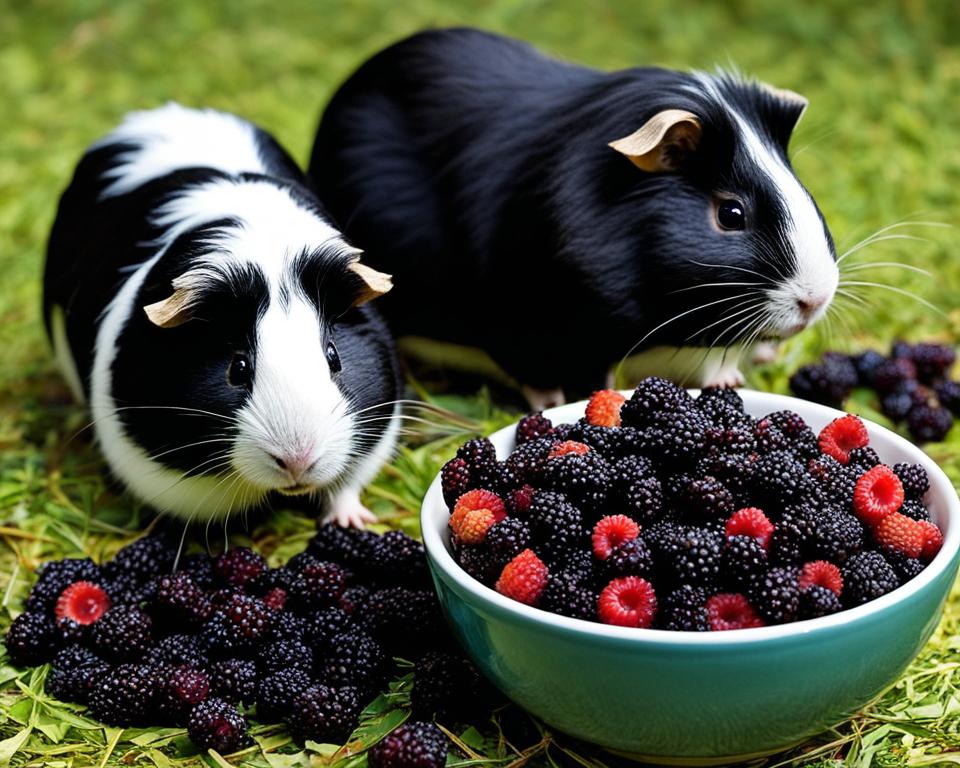
Conclusion
In conclusion, it’s safe for guinea pigs to eat mulberries, but they should be given in moderation. While mulberries offer some nutritional benefits, such as vitamin C and antioxidants, they also have a high sugar content that can lead to health issues when consumed in excess. Therefore, it’s important to prioritize their main diet, which consists of hay, fresh vegetables, and a small amount of pellets.
When feeding mulberries to your furry friends, always wash them thoroughly and remove any stems or leaves. Serve the fruit in small, bite-sized pieces to prevent choking. Additionally, remember to offer other safe treat options, such as apple, pear, or cucumber, to provide variety in their diet.
Overall, understanding your guinea pig’s dietary needs and following safe feeding practices is key to ensuring their well-being. As with any new food, introduce mulberries gradually and monitor your guinea pig’s reaction. With proper care and attention, your furry friend can safely enjoy the occasional treat of mulberries.
FAQ
Can guinea pigs eat mulberries?
Yes, guinea pigs can eat mulberries in moderation.
What are the nutritional values of mulberries?
Mulberries are rich in vitamins C and K, as well as antioxidants.
How should I feed mulberries to my guinea pig?
When feeding mulberries to your guinea pig, make sure to wash them thoroughly and remove any stems or leaves. Serve small, bite-sized pieces to prevent choking.
What should be the portion size for mulberries?
A suitable serving size for a guinea pig is around one or two small berries a few times a week.
What are the benefits of mulberries for guinea pigs?
Mulberries can support the immune system, reduce oxidative damage, and aid in digestion.
Are there any potential risks of feeding mulberries to guinea pigs?
Mulberries have a high sugar content, which can lead to weight gain and other health issues. Some guinea pigs may also experience gastrointestinal upset after consuming mulberries.
What are some other safe treat options for guinea pigs?
Other safe treat options include small pieces of apple, pear, or cucumber.
Can mulberries replace the main diet of guinea pigs?
No, treats like mulberries should never replace the bulk of a guinea pig’s diet, which should consist mainly of hay and fresh vegetables.
Are mulberries suitable for all guinea pigs?
While mulberries are generally safe for guinea pigs, some may have specific dietary restrictions or sensitivities. Always consult with a veterinarian if you have any concerns.

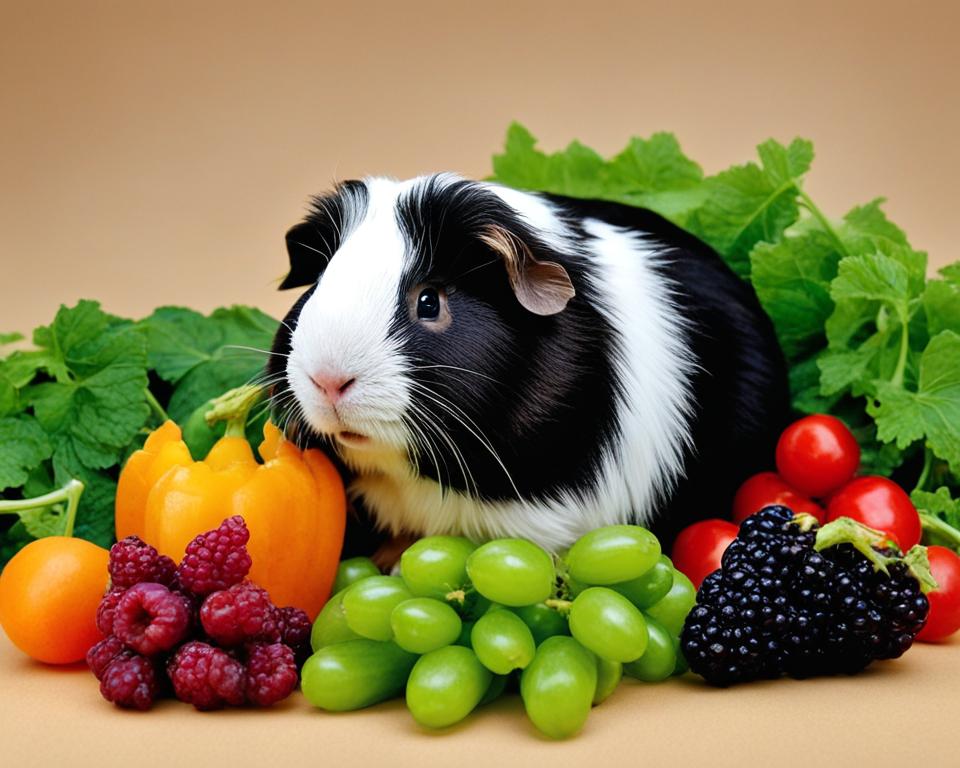
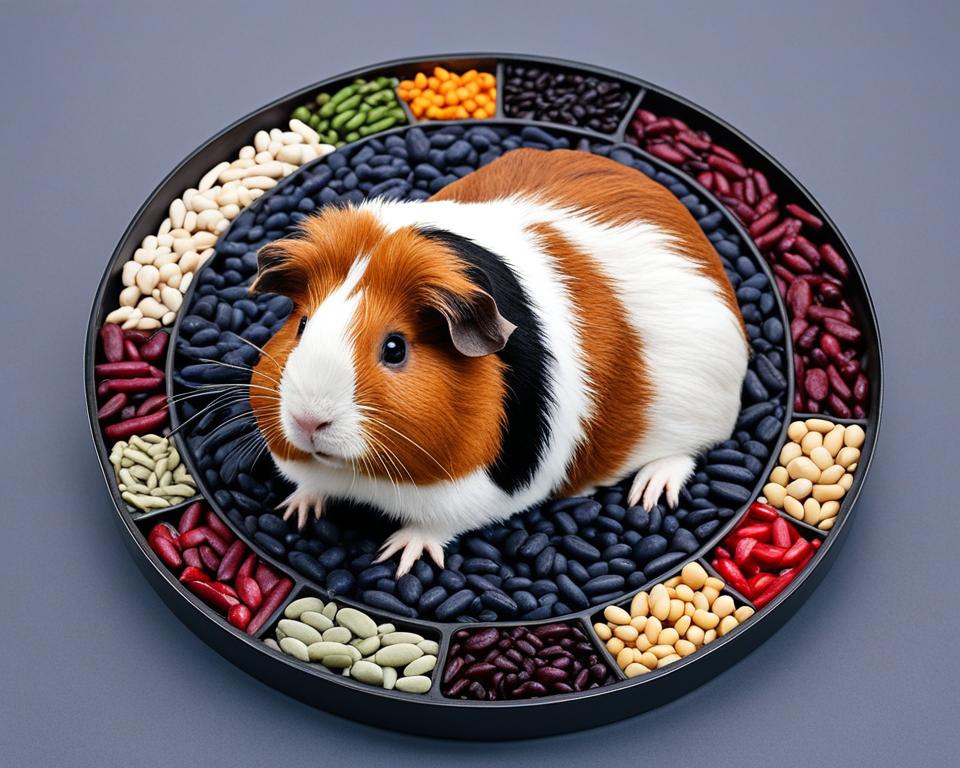
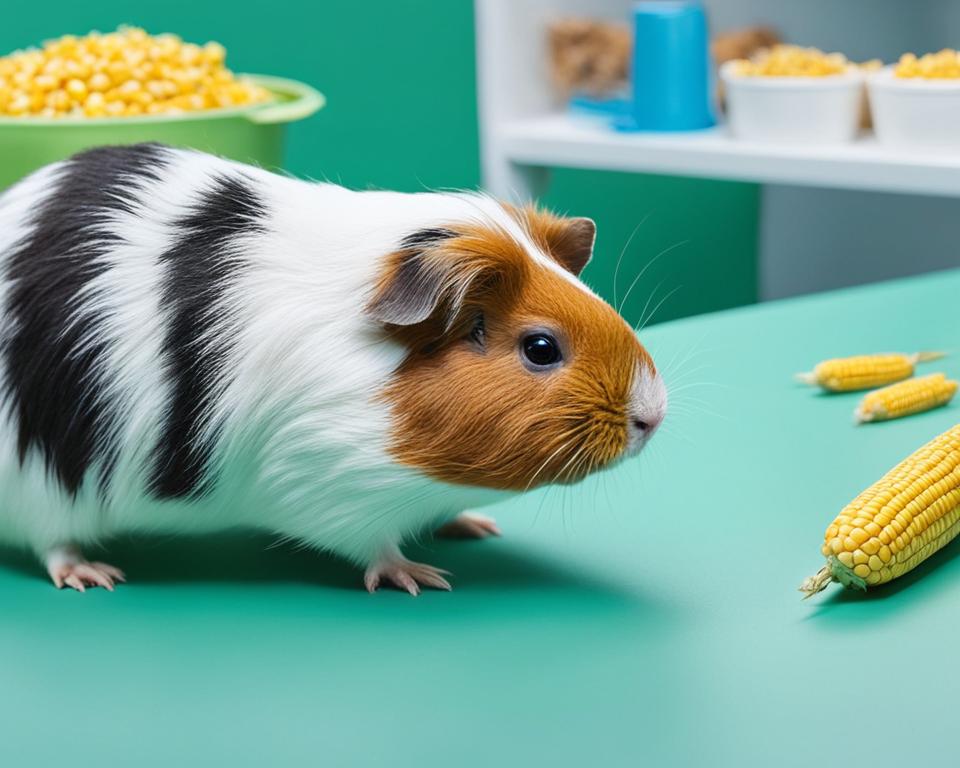
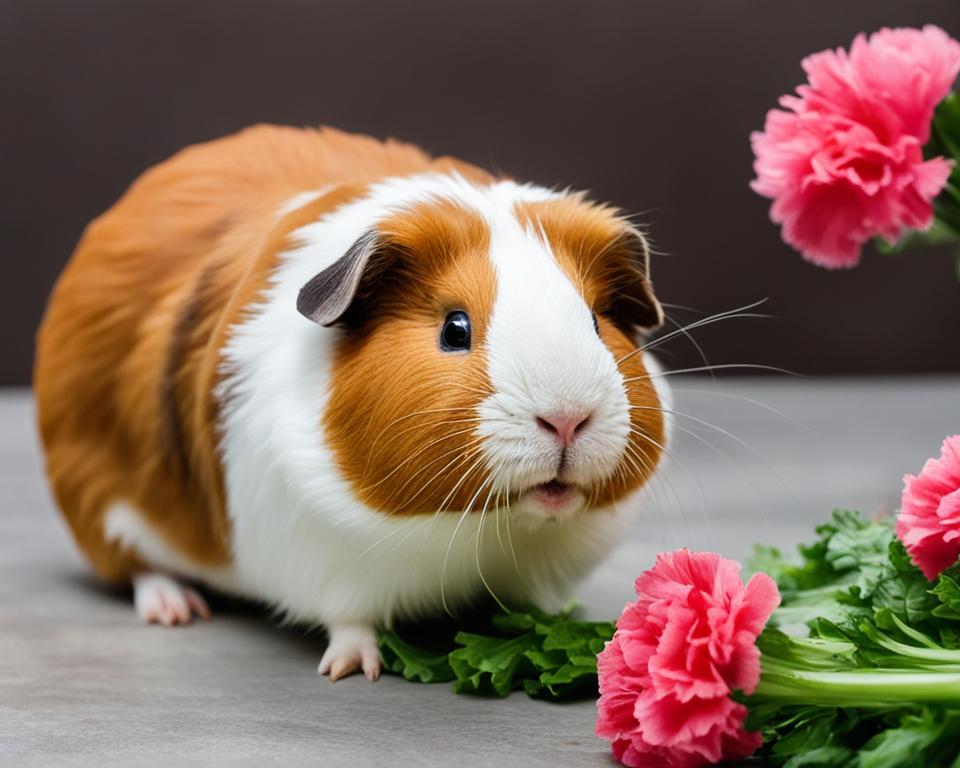
Leave a Reply